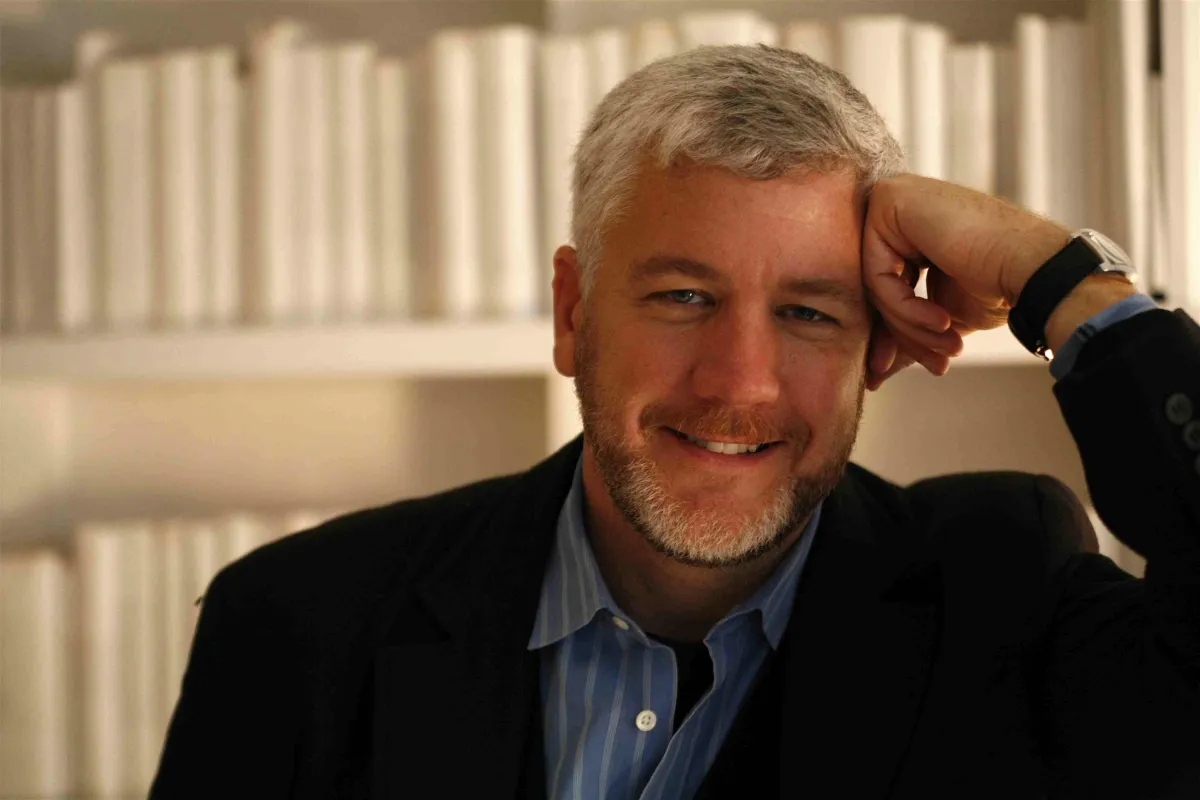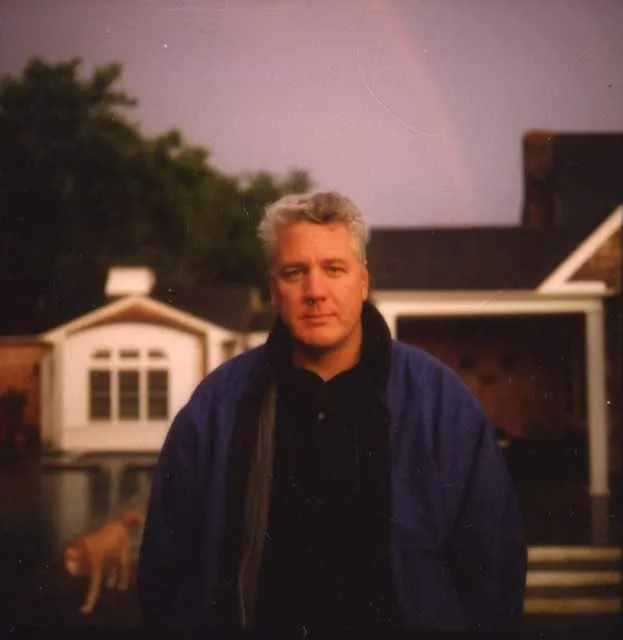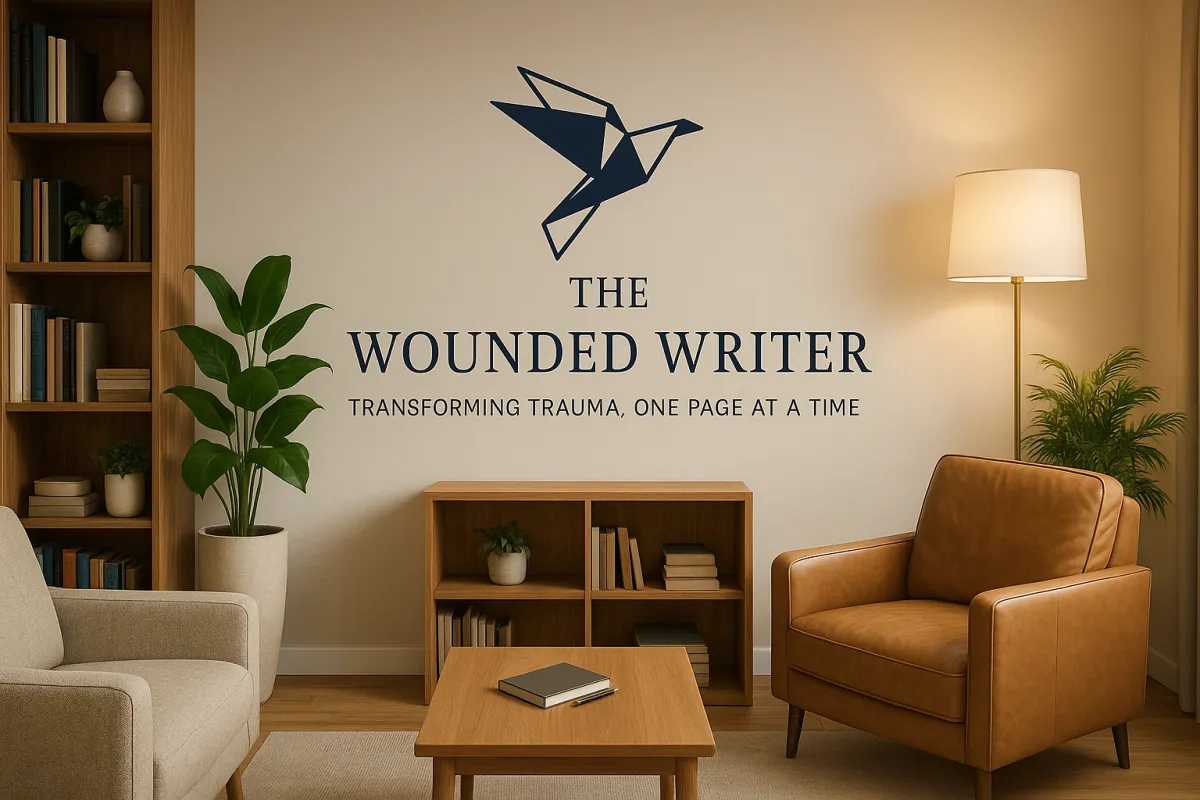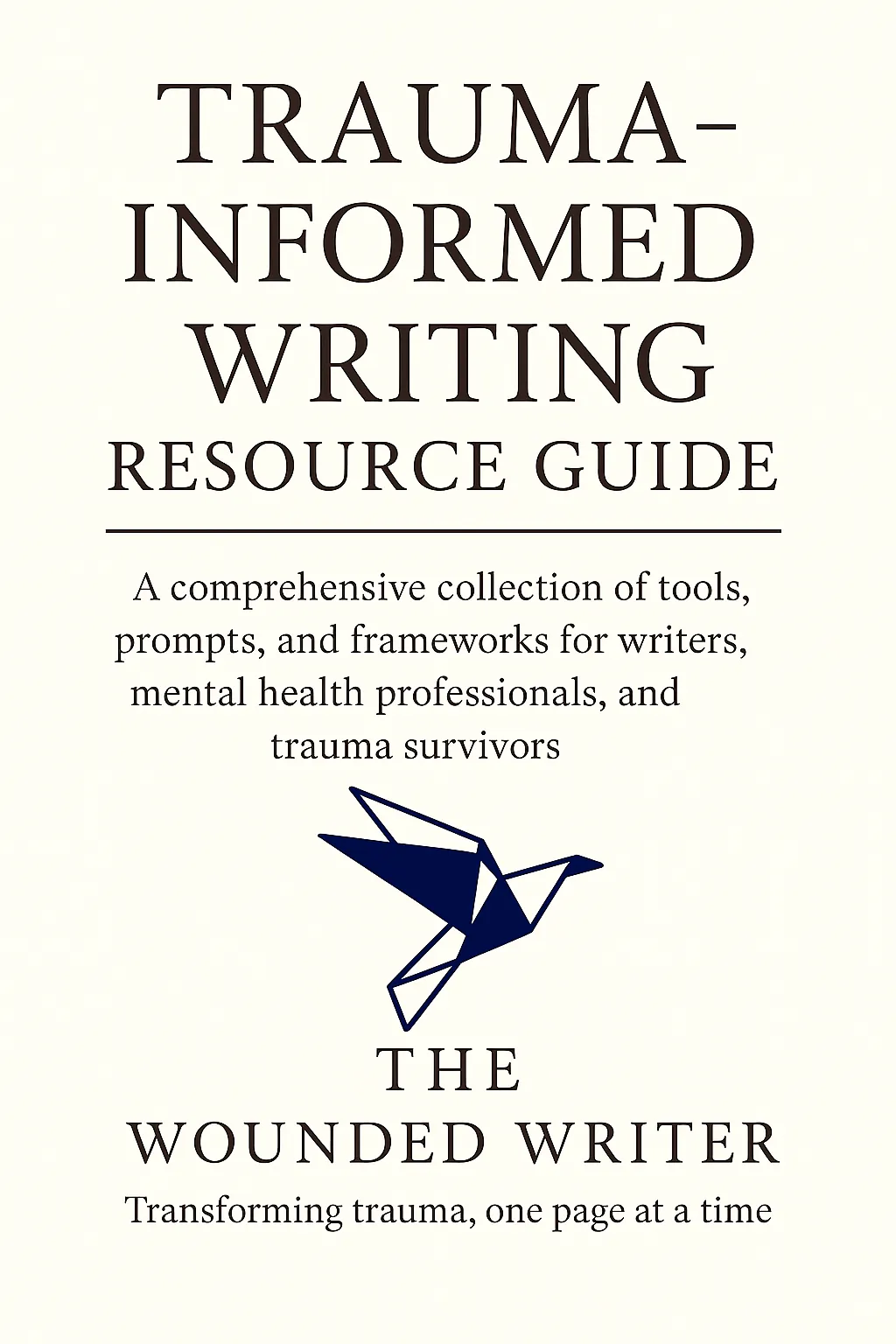WELCOME TO
The Wounded Writer:
We help trauma survivors and those suffering from extreme loss and grief find healing and self-expression through guided writing workshops and one-one-one support.

Carrying the weight of an untold story or past wounds can feel isolating. Writing offers a path to healing, but starting the process can feel daunting. Our trauma-informed approach provides guidance and support to help you navigate and express your journey.

I'm T.J. Parsell, and I help trauma survivors find healing and self-expression through guided workshops and one-on-one support.
I do this work because I’ve lived the transformation that happens when we put our stories on the page. Writing doesn’t erase the pain, but it gives us power over it. It allows us to move through what feels unspeakable and find a way forward. My workshops are about holding space for those who are ready to explore their stories—gently, honestly, and without judgment. Whether it’s through group sessions, one-on-one support, one of my books or free resource guides, my mission is simple: to help you discover the healing power of your own words.
"I believe in the power of writing to process pain, reconnect with yourself, and find freedom. That's why I created The Wounded Writer Workshops."
Work With Us

Sign up for a Free Online
Trauma-Informed Workshop
Discover the power of trauma-informed writing in this free, introductory workshop. With compassionate guidance, you’ll begin to explore your story, gain tools to process your experiences, and take the first steps toward healing. This is your opportunity to see how writing can transform pain into meaning in a supportive, judgment-free space.

Register for our 6-Week
Trauma-Informed
Wirter's Workshop Series
In this immersive workshop, you’ll be guided through trauma-informed writing practices designed to unlock clarity, foster emotional healing, and help you reclaim your voice. With actionable prompts, personalized insights, and a supportive group dynamic, you’ll gain the tools to write your story and create lasting change in how you see yourself and your past.

Reserve a One-on-One Coaching or Consultation with T.J.
Work with me one-on-one to dive deeply into your story and uncover its transformative power. Together, we’ll create a safe space to explore your experiences and develop your writing with tailored feedback, actionable insights, and unwavering support. Whether you’re writing to heal or creating a book, this personalized coaching will help you find clarity, courage, and direction.

Resource Guides, Books, Writer's Retreat to Heal, Write and Transform..
Explore a wealth of tools to support your healing journey. From my award-winning memoir, Fish, to The Wounded Writer: 365 Days of Trauma-Informed Writing, my books provide inspiration, guidance, and actionable steps to help you write through pain and reclaim your story. Join our immersive retreats for a deeper, hands-on experience or download a free guide to start your journey today.
Success Stories

Sarah, a 42-year-old trauma survivor, came to one of my workshops feeling silenced by her past. She had spent years in therapy but struggled to put her experiences into words. During the workshop, Sarah began exploring her story using prompts designed to gently guide her through feelings of shame and self-doubt.
By the end of the workshop, Sarah shared a piece of writing aloud for the first time in her life. Through tears, she said,
“I’ve never felt safe enough to tell my story, but this space made it possible.”
That moment became a turning point. Today, Sarah continues to use writing as a tool for healing and is working on a memoir that she hopes will inspire others.

I've always been a little skeptic about coaching, but my experience with T.J. has been nothing short of extraordinary. His sessions allowed me to explore my inner self and confront my deep-seated fears in a way I've never been able to before.
Jane Riley

I never thought of writing as a way to heal—I figured it was just something therapists suggested. But this workshop changed that. T.J’s trauma-informed method made it feel safe to explore things I usually avoid. The prompts were sharp, the group was supportive, and the process was surprisingly powerful. For the first time, I was able to put words to things I’ve carried for years. I didn’t just write—I understood myself better. This experience helped me make real progress in my healing
Dan L.
FAQS
I’m not a writer. Can I still participate?
Absolutely! You don’t need to be a professional writer or have any writing experience to benefit from The Wounded Writer workshops or resources. These workshops are designed for anyone who wants to explore their story, process their emotions, or heal through the act of writing. It’s not about being perfect—it’s about showing up for yourself and letting the words come as they will. We focus on the process, not the product.
I’m afraid writing about my trauma will make things worse.
It’s completely normal to feel hesitant or even scared about exploring difficult experiences through writing. That’s why The Wounded Writer takes a trauma-informed approach, emphasizing safety, pacing, and self-compassion. You’ll never be pressured to write about something you’re not ready to face. Instead, you’ll learn tools to create boundaries with your writing and strategies to ensure the process feels safe and empowering—not overwhelming.
What if I don’t know where to start?
Feeling unsure about where to start is completely normal, especially when it comes to something as personal as writing about your story. Our workshops, guides, and one-on-one consultations are designed to help you take that first step. Whether it’s through a simple writing prompt, a visualization exercise, or even writing just a single sentence, we’ll provide you with gentle guidance to help you begin in a way that feels manageable.
What if writing brings up emotions I’m not prepared to deal with?
Writing can sometimes bring up strong emotions, which is why our trauma-informed approach prioritizes creating a safe and supportive environment. You’ll learn techniques to pause, step back, and ground yourself if the process feels too intense. We also encourage you to take breaks and honor your limits. If needed, you can also bring in the support of a therapist or trusted professional alongside your writing journey.
I don’t want to share my writing with anyone. Is that okay?
Absolutely. Sharing is completely optional. The focus of The Wounded Writer is on your personal growth and healing, not on producing something to share with others (unless that’s something you decide to do). Your writing is for you, and you’ll never be required to share it during workshops, consultations, or in any other part of the process.
What if I get stuck or feel blocked while writing?
Writer’s block can happen to anyone, especially when working with emotionally charged topics. That’s why we offer prompts, exercises, and techniques to help you move through moments of resistance. Sometimes, simply allowing yourself to pause and reflect is part of the process. You’ll never be judged for getting stuck—it’s all part of the journey.
I’m not sure if I’m ready to face my trauma yet.
It’s okay if you’re not ready yet. Healing happens on your timeline, not anyone else’s. The Wounded Writer is here whenever you feel ready to explore your story—whether that’s today, next month, or years from now. In the meantime, you can engage with our resources at your own pace or start with lighter, less emotionally intense exercises to build comfort and trust with the process.
Is this workshop like therapy?
While writing can be therapeutic, The Wounded Writer is not therapy and is not a replacement for professional mental health support. Instead, our workshops and resources offer tools to help you process your story, explore your emotions, and find empowerment through creative expression. If you’re currently in therapy, writing can be a helpful complement to the work you’re already doing.
I’m worried my writing won’t be ‘good enough.’
There’s no such thing as “good” or “bad” writing when it comes to this process. The Wounded Writer isn’t about perfect sentences or polished prose—it’s about showing up and letting your words reflect your truth. This is a space where your writing is enough, just as it is, because it’s an expression of you.
What if I can’t finish the workshop or your resources feel too overwhelming?
Healing is not a race, and neither is writing. You’re welcome to engage with our workshops and resources at your own pace. If you need to step away and come back later, that’s okay. Progress looks different for everyone, and you’re in control of how much or how little you engage at any given time.
Is this process confidential?
Yes. Confidentiality is a top priority in all aspects of The Wounded Writer. If you attend workshops, you’ll be part of a safe, supportive group where sharing is optional and mutual respect is emphasized. For one-on-one consulting, your privacy will always be respected, and anything you share will remain between you and your consultant.
What if I’m already working with a therapist?
That’s great! Writing can be a wonderful complement to therapy. Many participants find that writing helps them process their emotions in ways that are hard to verbalize during therapy sessions. You can also share what you’re working on with your therapist if it feels helpful, creating a bridge between the two healing modalities.
How is The Wounded Writer different from other writing programs?
The Wounded Writer is unique because it’s designed with a trauma-informed approach. We prioritize your emotional safety, provide tools to set boundaries with your writing, and focus on healing rather than performance or productivity. This is not about becoming a better writer—it’s about connecting with yourself, exploring your story, and finding empowerment through the act of writing.
Do I need to have experienced trauma to participate?
Not at all. While The Wounded Writer is designed to support those processing trauma, grief, or loss, anyone seeking to explore their personal story or emotional growth through writing is welcome. If you’re feeling drawn to this process, there’s a place for you here.
What if I feel I don’t have a story worth telling?
Everyone has a story that matters—especially you. Sometimes it can feel like our experiences aren’t significant enough or don’t deserve attention, but that’s simply not true. Your story, no matter how big or small it feels, holds value because it’s part of who you are. Writing can help you see the importance of your own narrative in ways you might not expect.

